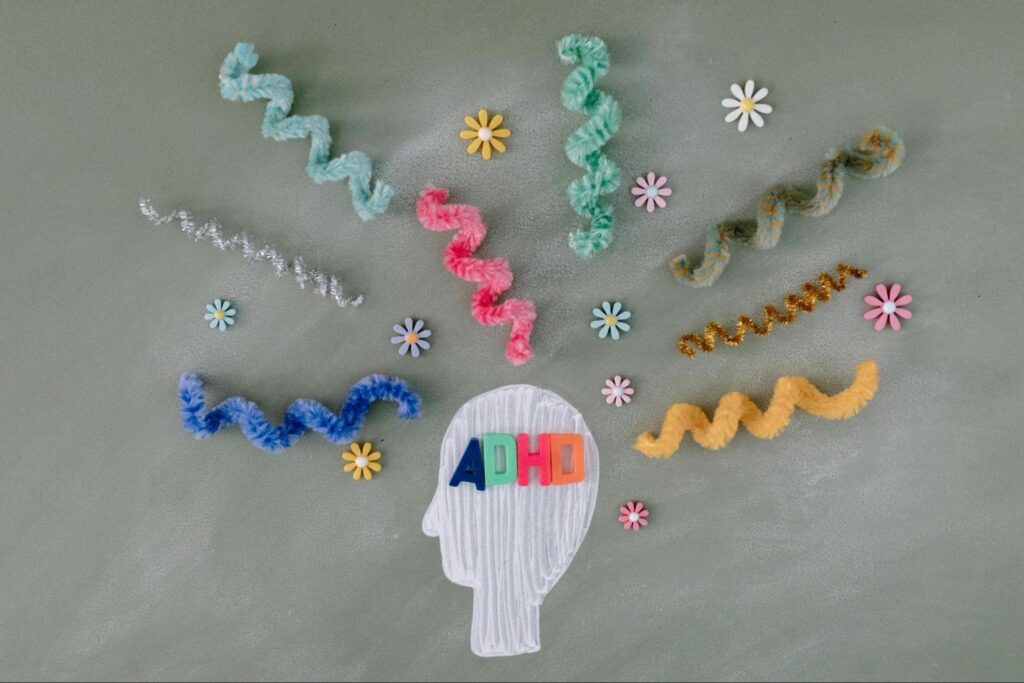
Understanding the Growing Rates of ADHD
Attention Deficit Hyperactivity Disorder (ADHD) is widely recognized today, impacting many individuals across the globe, including in Australia. Between 2000 and 2018, ADHD diagnoses surged significantly, especially among young men aged 18-29, showing a 20-fold increase. Similarly, the demand for ADHD medications spiked, with prescriptions jumping 50-fold in that period.
The current surge in ADHD diagnoses has led many in Australia to explore alternative treatments, including medical cannabis, especially as traditional medication supplies are often strained. With cannabis clinics experiencing an influx of ADHD patients, an important question arises: Can medical cannabis effectively alleviate ADHD symptoms?
What is ADHD?
ADHD is a neurodevelopmental disorder that can affect a person’s thought processes, behaviors, and ability to focus. The symptoms generally fall into three primary categories:
- Hyperactive and Impulsive: This includes restless or disruptive behavior, often noticed through excessive talking or moving.
- Inattentive: Individuals may experience disorganization, frequent distraction, and boredom.
- Combined Type: A combination of both hyperactive-impulsive and inattentive symptoms.
ADHD often presents differently in males and females, with boys more likely to exhibit overtly disruptive behavior, leading to a historically higher diagnosis rate among boys. However, better awareness has helped the medical community recognize ADHD symptoms in girls and adults, resulting in a broader understanding and diagnosis of ADHD.
The Rise of ADHD Diagnoses in Australia
In Australia, as in other countries, recent shifts in diagnostic criteria, combined with increased public awareness, have led to a dramatic rise in ADHD diagnoses. ADHD can often be an overlooked condition, particularly in adults who may have spent their childhoods undiagnosed. Many adults in Australia are now receiving diagnoses that help them better understand long-standing symptoms and improve their quality of life.
While ADHD symptoms can be challenging, they may also offer certain strengths, such as creativity and unique thinking styles. Still, to warrant a diagnosis, ADHD symptoms must significantly interfere with daily life in multiple areas. Though there is no cure for ADHD, various treatment options, including medication, behavioral therapy, and now cannabis, are available in Australia to manage symptoms effectively.
How Cannabis May Affect ADHD Symptoms
Given ADHD’s roots in brain function, cannabis compounds—particularly tetrahydrocannabinol (THC) and cannabidiol (CBD)—are of special interest. Each compound interacts with the brain differently:
- Tetrahydrocannabinol (THC): The psychoactive element responsible for the cannabis “high,” THC attaches to cannabinoid receptors in the brain and nervous system, potentially altering mood, perception, and attention.
- Cannabidiol (CBD): Non-psychoactive, CBD is valued for its potential therapeutic effects without producing a high. Its popularity in wellness products has surged worldwide, including in Australia.
For individuals with ADHD, these compounds may offer various benefits. While CBD is generally preferred for its calming effects, THC can also be useful, especially for individuals seeking mood regulation. The right balance of THC and CBD varies, as each strain affects people differently. In Australia, accessing medical-grade cannabis may offer a tailored solution under professional guidance.
Potential Benefits of Cannabis for ADHD
Research on cannabis for ADHD is relatively limited but evolving. Some studies indicate potential benefits, especially concerning symptom relief.
Summary: Cannabis and ADHD Management in Australia
- Focus and Relaxation: Anecdotal evidence from people with ADHD suggests cannabis helps them manage hyperactivity, reduce impulsivity, and increase focus, contributing positively to their overall quality of life.
- Support for Medication Side Effects: Many individuals report cannabis can ease the side effects of standard ADHD medications, such as irritability, insomnia, and loss of appetite.
- Anxiety and Sleep Improvement: Studies have shown that cannabis may improve sleep quality and help relieve anxiety, which are common concerns for those with ADHD. A 2023 study indicated that cannabis use was linked to improvements in sleep and reduced anxiety among ADHD patients, though it emphasized the need for further research.
It’s important to note that most data supporting cannabis use for ADHD management in Australia are based on self-reported effects and observational studies rather than large-scale clinical trials. As such, while early indications are promising, they call for more rigorous research.
Risks and Concerns with Cannabis Use for ADHD in Australia
While some ADHD patients in Australia have reported positive outcomes with cannabis, it is crucial to consider potential risks. Higher doses of THC, for example, can lead to side effects such as:
- Headaches and mood swings
- Nausea and drowsiness
- Paranoia and heightened anxiety
- Breathing issues (especially when smoked)
Additionally, self-treating ADHD with cannabis or substituting cannabis for prescribed medications is not recommended without professional advice. The effects of cannabis vary widely, and without proper guidance, there is potential for misuse. For this reason, people in Australia who are considering medical cannabis for ADHD should consult healthcare providers to discuss safe and effective usage options.
Legal Status of Medical Cannabis for ADHD in Australia
Medical cannabis is legal in Australia but strictly regulated. While recreational cannabis remains illegal, the Therapeutic Goods Administration (TGA) has classified cannabis as a Schedule 8 controlled substance, allowing it to be prescribed by specialists for medical use. Australian cannabis clinics may prescribe cannabis for ADHD if they determine it could benefit the patient. However, the decision to prescribe medical cannabis for ADHD is typically based on a thorough assessment, ensuring that it’s an appropriate option.
Since the introduction of medical cannabis programs in Australia, interest has grown, particularly among patients seeking alternatives to traditional ADHD medications. Although cannabis-based ADHD treatments are still emerging, the increasing accessibility of medical cannabis clinics in Australia provides a regulated pathway for eligible patients.
The ongoing research into cannabis as an ADHD treatment in Australia presents both hopeful possibilities and necessary caution. Current studies suggest that medical cannabis could help manage ADHD symptoms by improving focus, reducing hyperactivity, and easing anxiety. However, more large-scale research is essential to fully understand its efficacy and safety.
Key takeaways:
- Promising Outcomes: Early research and anecdotal evidence hint at benefits for ADHD symptom management, including improved focus, better sleep, and reduced anxiety.
- Risks and Precautions: Cannabis may present side effects, and individuals should avoid self-medicating without professional guidance. The influence of cannabis on ADHD is still being studied, and effects can vary greatly from person to person.
- Legal Access: In Australia, medical cannabis for ADHD can only be accessed through specialist prescription, highlighting the need for open discussion with healthcare providers.
As the medical cannabis landscape in Australia evolves, individuals with ADHD interested in exploring cannabis treatment options should do so responsibly, consulting with medical professionals who understand the unique effects of cannabis on ADHD.







